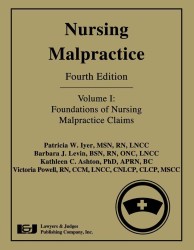Full Description
Evidence-based best practices to support practitioners in LGBTQ+ mental health care
This second edition of the LGBTQ+ Psychotherapy Treatment Planner updates and expands upon the first edition to reflect the evolving understanding and best practices in LGBTQ+ mental health care. New chapters, expanded appendices, and the inclusion of detailed objectives and interventions grounded in evidence-based practices have been added to enhance the comprehensiveness and relevance of this resource.
Each chapter is structured to guide clinicians through objectives and interventions appropriate for these various levels, emphasizing a continuum of care approach. Readers will find insights on:
Developing long-term coping strategies to counter and overcome discrimination experienced by LGBTQ+ persons seeking approval for and parenting a child
Reducing or eliminating symptoms of psychological distress (e.g., anxiety and hopelessness) related to aging and life transitions
Learning and implementing coping skills that result in a reduction of anxiety and worry, and improved daily functioning
The second edition of the LGBTQ+ Psychotherapy Treatment Planner is an informative, practical, and indispensable guide for clinicians to create thoughtful, comprehensive, culturally responsive, and equity-focused treatment plans
Contents
Preface ix
About the Companion Website xi
Introduction 1
Addiction/Substance Use 14
Adoption/Assisted Reproductive Technology (ART) 25
Aging 33
Anxiety 41
Breast Cancer 52
Coming Out 60
Depression 68
Family of Origin Conflicts 80
Female Sexual Dysfunction 91
Grief/Loss Unresolved 99
Hate Crimes Victim 107
Immigration Issues 115
Internalized Homophobia/Transphobia 122
Intimate Relationship Conflicts 131
Legal Conflicts 141
Male Sexual Dysfunction 147
Parenting Conflicts 154
Physical/Emotional Abuse Victim 163
Political/Religious Persecution 170
Religious Conflicts 177
Safer Sex 184
Same Sex Marriage 192
Separation/Divorce 199
Sex Work 205
Sexual Abuse 212
Sexual Acting Out 218
Sexual/Gender Identity Confusion—Adolescent 226
Sexual/Gender Identity Confusion—Adult 233
Sexual Orientation Change Efforts (SOCE) Recovery 239
Sexually Transmitted Infections (STIS) 246
Transgender 254
Workplace Discrimination 262
Appendix A: Bibliotherapy Suggestions 270
Appendix B: Professional Resources 285
Appendix C: National Resources 307
Appendix D: Recovery Model Objectives and Interventions 317
Appendix E: Cited and Commonly Used Assessment Instruments and Their Sources 323
Appendix F: References to Empirical Support for Evidence-Based Content (Accessible via www.wiley.com/go/Evosevich/)







